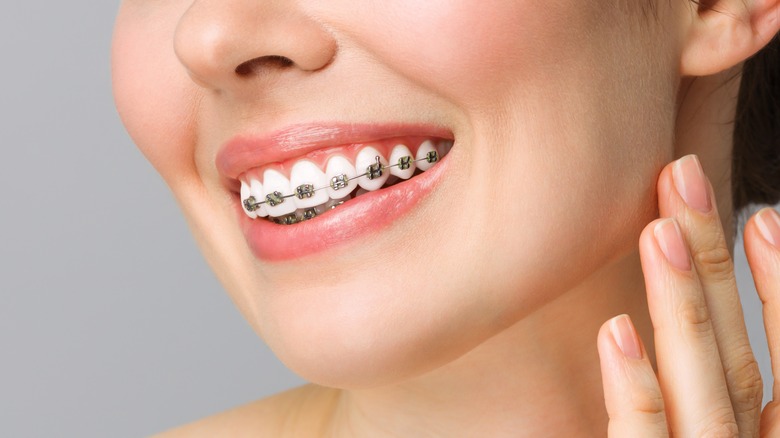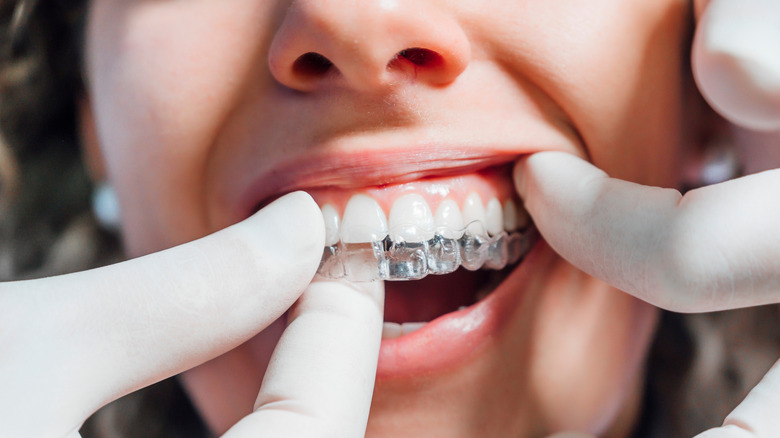What To Expect When You Get Your Braces Off
Dental braces are vital tools that help align the teeth and reduce crookedness, according to WebMD. There are several kinds of braces that an orthodontist or dentist can use depending on the condition of your teeth.
The most commonly applied are metal braces, which are relatively comfortable and lightweight. They do require immense care in terms of hygiene, as brushing can be tricky at times. Some people may have ceramic braces, which are less visible but comparatively larger than metal braces. You may also opt for lingual braces, which are completely invisible and inserted behind the teeth. However, they can only be placed by an expert dentist who is proficient with this surgery, as it requires a special skillset (via Bellevue Orthodontics).
At some point, you may need to remove the braces, as they are not permanent and only applied for a specific amount of time. Before considering braces removal, it's important to be aware of what to expect and the precautions you may need to take after getting rid of braces.
What happens after you have braces removed
When you have dental braces, your dentist may contact you periodically to make adjustments to the wiring. You can make an appointment with your orthodontist when it comes time to remove the braces. They may ask you to take a pain-relieving pill beforehand to reduce the chances of discomfort. Additionally, Healthline suggests that you should brush your teeth before going in for braces removal.
Orthodontists normally use special pliers to gently take off the braces one by one by squeezing them through the brackets. After that, they may thoroughly rinse the mouth, polish the teeth, and do a check-up to see how well the braces aligned your teeth, reports WebMD. Finally, you may receive a retainer to help the newly aligned teeth settle into the gums. Not wearing a retainer can cause adverse effects and allow the teeth to become misaligned. Avoid super crunchy, spicy, or hot foods, as they may increase sensitivity in the teeth. Go for soft, mellow foods for a while to prevent harsh reactions. In short, give yourself ample time to let the teeth and bones adjust to the changes.


